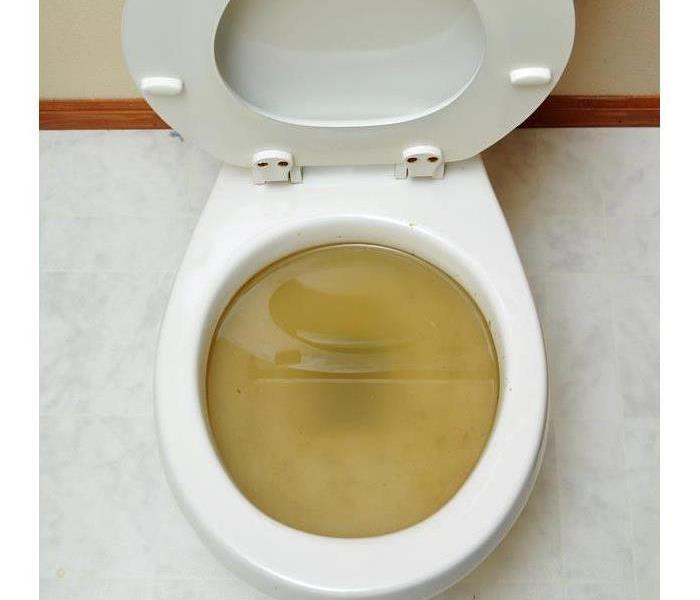What To Do When You Suspect a Broken Pipe
4/13/2022 (Permalink)
 If you see raw sewage coming out in places such as your basement or faucets, it's best to contact your local sewage and water damage experts.
If you see raw sewage coming out in places such as your basement or faucets, it's best to contact your local sewage and water damage experts.
What To Do If You Think You Have A Broken Pipe
If you suspect a broken pipe, the first step is to locate the break. This can be easy to determine based on where you first noticed the signs. However, it could be located somewhere that you are not privy to as a residential home owner.
Read on to find out what to look for and how to mitigate as much damage as possible.
Signs of a Pipe Break
There are telltale signs of a broken pipe. Some include:
- Noises from walls
- Water leaks or flooding
- Musty smells
- Stains
- Water discoloration
- Lower water pressure or no water
- Increased water bill
Once you suspect that a pipe is indeed burst, you need to locate the break. It will either be in your home's plumbing system or in the public sewer system.
Breaks in the Sewer System
If the pipe break is in the sewer system rather than your residence, it can still affect you at home. Called a sanitary sewer overflow, this can contaminate:
- Water in home
- Lawns
- Consumable fish
- Air
- Documents
- Property
It can also cause flooding in the area. This likely isn't fixable directly by a home owner, but it is something to watch out for inside of your home. If you see raw sewage coming out in places such as your basement or faucets, it's best to contact your local sewage and water damage experts in Glendale, AZ.
Breaks in Residential Pipes
The pipe break can alternatively be in your home's plumbing system, and this requires a bit more vigilance on your part. As a home owner, you are responsible for paying for any damages incurred on your property. If you don't locate the source of the break quickly and get it resolved, you could run into major issues. Some causes of residential pipe breaks include narrowed pipes, freezing temperatures, or appliances overworking.
The good news is that you can watch out for the signs of a pipe break listed above. Then, professionals can identify the source of the issue before any lasting damage occurs. It's crucial to fix a broken pipe before it causes you to, quite literally, flush money down the drain.



 24/7 Emergency Service
24/7 Emergency Service